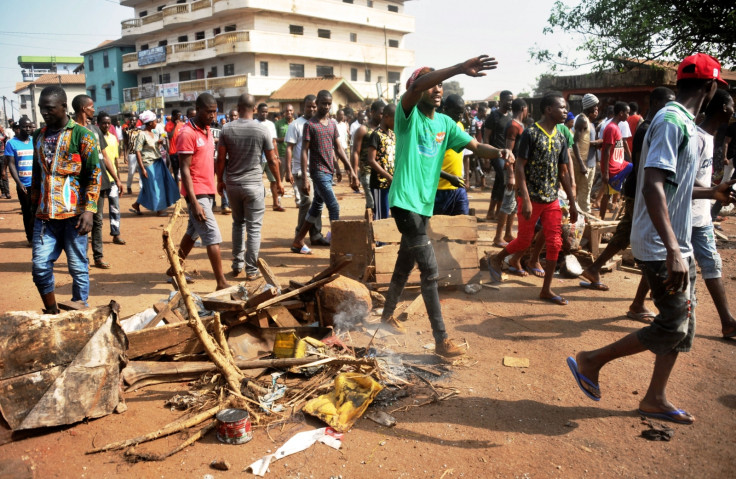Guinea death toll rises to seven shot dead in deadly clashes over teachers' strike
Government investigating police crackdown on hundreds of students, mostly aged 15 and older.

Two more people have died following demonstrations in Guinea on Tuesday (22 February), bringing the number of casualties to seven since protests over a teachers' strike broke out on Monday in the capital, Conakry.
The West African country's two largest teacher trade unions began to strike on 1 February against the government's decision to dismiss, or cut the salaries of, many contracted junior teachers. Students, who have been kept them out of class for several weeks, took to the streets to support their teachers.
The seven people were killed on Monday and Tuesday after police cracked down on hundreds of demonstrating students – mostly aged 15 and older with stones and sticks, according to the government. Violence on Monday left 30 wounded and police arrested 12.
A hospital worker, quoted by AFP, said the dead were shot at close range by riot police and gendarmerie.
The government condemned violence and said an investigation had been opened into the deaths. It renewed its condemnation of the violent incidents, saying the demonstrations are illegal.
The government late on Sunday struck an agreement with the main teachers' unions, but students on Tuesday urged the authorities to push for a final deal with the unions so they could return to classes.
Quoted by AFP, Souleymane Sy Savane, secretary-general for Guinea's Free Trade Union of Teachers and Researchers, said that schools would re-open on Wednesday. Other union officials, however, said they did not agree with the agreement and wanted an immediate pay raise of between 7.5% and 10.3%.
"This agreement is binding only for the trade union officials who signed it, and we are basically challenging it until the re-evaluation (pay raise) is effective," Kalidou Diallo, the union's administrative secretary of the union, told Lynx FM radio station. Negotiations continue.
Deepened by ethnic and political tensions, violence in the months leading up to, and following the 11 October 2015 presidential elections, resulted in a dozen deaths and exposed ongoing concerns about abuses by the security forces.
General strikes just about a decade ago were severely suppressed by security forces, killing 135.
© Copyright IBTimes 2024. All rights reserved.






